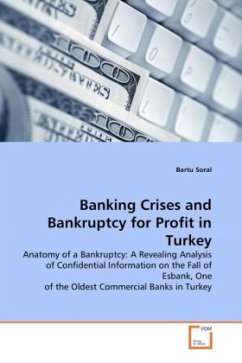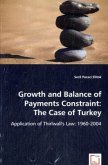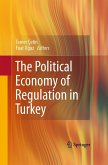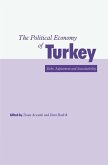The internationalization and deregulation of domestic financial systems since the 1980s has increased the risks and propensity of failure in national banking systems and financial markets, as experienced in Russia, Brazil and Asia. Through an insightful analysis of confidential information secured after the fall of Esbank in Turkey, this book shows that bankruptcy for profit, namely looting and outright fraud, was an important cause of the Turkish banking crisis during the 1990s. Looting primarily involved lending the bank's resources to firms that were directly controlled by the parent company - also the largest shareholder of the bank. The failure to establish an effective system of regulation and supervision against financial liberalization, the politicized regulatory environment that controls entry into and exit from the banking system, the provision of 100 % deposit insurance, and the failure to penalize outright fraud and illegal behavior all paved the way to bankruptcy for profit strategies and looting. The analysis is a valuable strategy tool for those in the banking and financial services sectors, financial policy makers, public servants, and individuals choosing a bank.
Bitte wählen Sie Ihr Anliegen aus.
Rechnungen
Retourenschein anfordern
Bestellstatus
Storno








